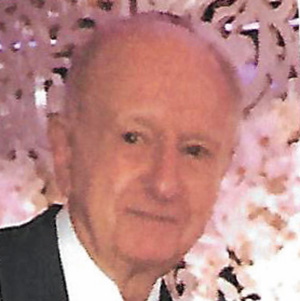
Part 5
(continued from last week)
He was moser nefesh (devoted) at the amud. On a particularly hot day, I once asked him what he did before the shul had air conditioning. “I had three black suits,” he said. “When I came home Friday night, every piece of clothing was soaking wet. I changed everything from head to toe (and suits had vests back then!). I did the same thing Shabbos morning and Shabbos afternoon. And I had to pay to have them cleaned during the week!”
I once asked him if he had kavana to be motzi people for Havdalah. He laughed. “I have all the kavanos,” he said. I later learned that he made it his business to know the translation of all the davening, even the complex and difficult piyutim said throughout the year.
Of course, the essence of davening is what is in our heart. But Chazal (the Sages) favored a fixed nusach, so that those private and awesome thoughts, which range from the sublime to the silly, remain private and in our hearts when we daven. That being so, how does one comport oneself as the representative of the congregation before the Borei Olam (Creator)? With seriousness, dignity, respect and love. And that seriousness was the same whether it was a weekday Mincha or Kol Nidrei. That is what I learned from Chazan Frankel.
There were never any effects to his davening: no whining or “crying” or sentimentalism. The latest popular songs were never substituted for nusach. When he introduced a tune into davening, it was done with discretion, taste and sensitivity to the mood, setting and, most importantly, a sense that this would befit the One before Whom he stood. I think most people today do not understand this kind of davening. But I came to. And I miss it sorely.
About 14 years before he died, I was moving away from Washington Heights. He invited me to his tidy Yekkishe apartment. “I want to give you my music,” he told me. “If it stays here, it will just get thrown out. The only condition is that you promise me you will not throw it out.” I didn’t know what to say. I certainly felt unworthy of such a treasure. But I took it, and I still have it all until this day. The papers and volumes he gave me include some original compositions and notebooks from Germany with various hand-written tunes.
Many years later, when I went back to see him (before we started our Yekkishe minyan in Baltimore), he asked me, “Do you ever daven before the amud?” I told him not too often, which was the truth at the time. He didn’t ask, but I think he intuitively knew why I didn’t. Most people today don’t understand this kind of davening. They want to be entertained or inspired. They want the davening to jump out at them and be meaningful, without putting in any effort to understand the complex interplay between musical nusach and the words printed on the page. Many people I meet today don’t even know that davening has scores of different nuscha’os, passed down from the Maharil and earlier, each expressing a particular mood or theme. As long as their attention span isn’t taxed too much, and they get out of shul on time, who cares?
So I was thinking about all of this on Erev Rosh Hashanah. I looked around the shul. Not only was the paroches (ark curtain) white, every seat back was covered in a white cloth. Even the red carpeting itself had been covered with special white carpeting. Every man and boy had a white tie, and I knew the next day the men would stand dressed in white kittels, all-white talleisim, and special white head coverings. The shul itself was ready for Rosh Hashanah. I looked over at Chazan Frankel’s seat, empty as it has been for the past two years. And while I did, the current chazan put on his tallis and walked purposefully toward the amud. He is an outstanding chazan, much closer in age to me than to Chazan Frankel. And he walked to the amud without a smile on his face, tallis draped over his arms in the German style. But now I understand, all these years later, why he doesn’t smile or talk on his way to the amud. And I was truly thankful to be in that place, at that moment, in a tzibur (congregation) where kedushas beis haknesses (holiness of the synagogue) is as tangible as the sound of the chazan’s voice
That is why I daven with the Yekkes.
Now that the reader has gotten an idea about German, rather Frankfurt, customs, I want to make sure that no one gets the impression that that custom is any better or superior to any other custom. It is just different. The reader might remember that a few months ago I described a chasidishe wedding I attended in Antwerp. It certainly was far from what I was used to seeing elsewhere. It wasn’t better, it wasn’t worse, it was just different.
Let us all keep an open mind to the different minhagim of our fellow Jews and respect all of them without criticism.
By Norbert Strauss
Norbert Strauss is a Teaneck resident and Englewood Hospital volunteer. He frequently speaks to groups to relay his family’s escape from Nazi Germany in 1941.











